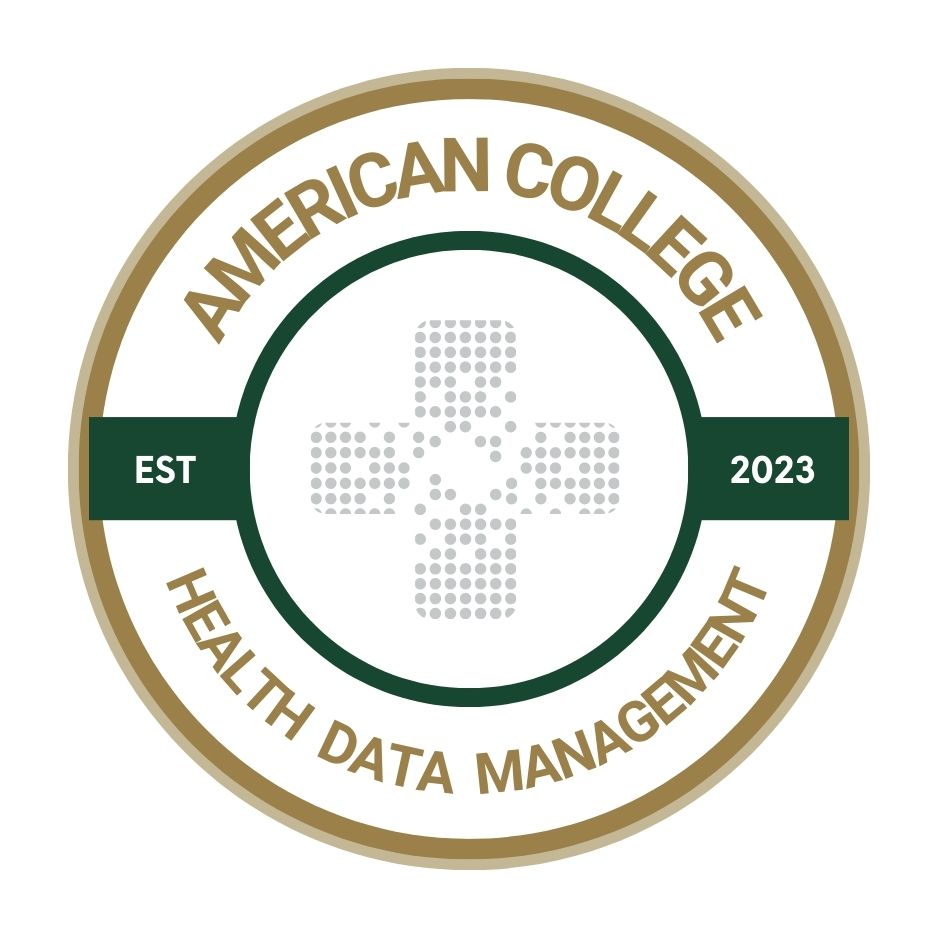Is healthcare in worse shape than it was 30 years ago?
The negative musings of a long-time leader in healthcare evoke responses from fellows of the American College of Health Data Management.

A few weeks ago, I had a conversation with a mentor of mine who expressed crushing frustration. He had spent 30 years in healthcare and, quite frankly, had a successful career by any standards, both in accomplishments and financial rewards. But he did not feel successful.
In that moment, I couldn't help but compare myself to him. I have now eclipsed a decade in healthcare, a youngster measured by most, but the experiences I have had propel me to jump out of bed each morning to launch my next decade in health and care. As I look down the road at the end of my 30 years in healthcare, I don't want to have the same regrets as this friend of mine.
This sparked several questions in me about the future of healthcare, and I decided to ask fellows of the American College of Health Data Management for their advice.
Zachary Sutton, Physician Assistant/Transplant Telehealth Outreach Manager | MUSC Health
Focus on Quality Solutions
“Healthcare has always faced challenges, and today is no different. Many of those challenges stayed the same as 30 years ago; we worked towards electronic medical records and integration, and we still do so today. Supply chain issues, nursing and workforce shortages, burnout, and many other challenges existed 30 years ago. However, we give these issues more press and attention than usual. The focus should be on quality solutions and less on the tension of these problems.
"In kidney transplantation, we have seen a renaissance in innovation, including analytics and artificial intelligence (AI). We use AI to monitor post-transplant laboratory results (predictive analytics for rejection and high-risk). There is also widespread use of genetic testing, analytics to shorten and monitor the time and travel of donor organs, the use of drones and AI in delivering organs promptly, and communication and record sharing to ensure accurate transplant documentation in a patient's chart."
Liz Griffith, Director of EHR Education | uPerform
The Importance of Humble Leadership in Healthcare
"I have had the privilege of witnessing many health system leadership teams who are actively trying to solve these challenges of technology burden, clinician satisfaction, trust in organizational leadership and more. I have also witnessed leadership teams that are unwilling to make the hard changes necessary to rise to these challenges. Leadership teams who are willing to truly invest in their clinicians are seeing improvement. Real investment. Creation of exceptional IT training programs (especially EHR) that truly help clinicians utilize technology to deliver better patient care. Leadership teams that take a hard look internally at their governance structures to see where change is needed to include more clinical voices (especially nursing voices) in the creation and implementation of processes that reduce documentation burden, improve workflow design, participate in IT decisions and more. I am encouraged by these teams willing to be humble enough to seek direct feedback about how they function and support their caregivers. Not all organizations do this. Not all leadership teams have this kind of humility. But the ones that do are making a difference."
Christine Pirillo, Program Manager - PMO East | Omnicell
Embracing Business Agility in Healthcare
“The healthcare landscape has evolved in the past 30 years. To say whether it has worsened or improved is a relative term. There are institutions that have managed to adapt to the changing climate and those that have chosen to remain complacent. Those who evolved have grown and acquired other systems in an attempt to close health inequity gaps and grow their market share. Business agility must become synonymous with care delivery to remain relevant in the healthcare arena and properly serve our communities.
"Vendors are becoming in tune with some of these day-to-day challenges and developing integrated platforms that contribute to higher efficiency and patient safety. We are seeing greater adoption of automation and the value that artificial intelligence brings to the care spectrum."
Dr. Zahi Jurdi, MHA Division Director/Faculty | Medical University of South Carolina
Healthcare - A Privilege or a Right?
“I don’t think the system is worse than it was 30 years ago – it is just different with new opportunities. Embracing change has never been easy. The U.S. healthcare system's conundrum was born out of attempts to integrate cost efficiencies, enhance quality, and improve access. As one of these components shifts, the entire system is affected. For instance, precision medicine is absolutely amazing and has the ability to tailor care to each patient on the individual level based on genetics, lifestyle, history and other factors. This care is great for those who can afford it. This leads us to the discussion of health equity. Is it equitable to provide precision medicine to those who can afford it? This comes back to the fundamental difference between the United States and other developed nations. In the U.S., access to healthcare is a privilege, not a right.”
Dr. R. Ryan Sadeghian, Chief Medical Information Officer | Arrowhead Regional Medical Center
A Balanced View of Healthcare's Journey
“Looking back at the evolution of healthcare over the past 30 years, we see a landscape of both substantial progress and new challenges. Technological innovations have ushered in complex diagnostic tools, minimally invasive surgical techniques, and a new era of telehealth and AI in patient care, yet these advancements have also raised new concerns around patient privacy, data security, and health inequality due to limited access to tech. In public health, the near-eradication of certain diseases due to vaccines and the significant progress in managing chronic illnesses present a bright side, but the emergence of health crises like COVID-19, antibiotic resistance, and escalating rates of obesity and type II diabetes remind us of the evolving challenges. Access to care has greatly expanded, although rising costs and persistent health inequities, particularly in nations without universal healthcare, raise serious concerns. The current healthcare paradigm reflects a field in constant evolution, learning from the past while gearing towards future innovation, notably shifting focus from treating to preventing illnesses, enabled by precision medicine and technology.
"Assessing whether healthcare is better or worse than 30 years ago is a nuanced task, with clear advancements shadowed by ongoing challenges. My advice is to stay informed about healthcare developments, maintain proactive personal health habits, and understand the current system's limitations to make informed decisions and advocate for necessary changes. The future of healthcare holds substantial promise, but recognizing and addressing its flaws is crucial for true progress.
"Through my experiences, I've observed a remarkable fusion of people, processes and healthcare technologies driving significant breakthroughs, yet also areas necessitating more resources. The global response to the COVID-19 pandemic epitomizes this convergence, as researchers, healthcare providers and policymakers united to understand the virus, expedite vaccine development and coordinate public health measures. Bioinformatics and telemedicine, pivotal to these efforts, underscored the power of this trinity in addressing urgent crises. Conversely, I've noticed mental health care as a sector enduring a resource shortfall. Despite a rising awareness of mental health issues and their broad implications, resources allocated here are insufficient. The scarcity of mental health professionals, lack of funding and inadequate integration into general healthcare persist, while solutions like teletherapy and digital mental health apps struggle to bridge the gap due to resource constraints.
"Lastly, digital health equity calls for greater investment. The swift advancements in health technology risk exacerbating health disparity if underserved communities lack access to requisite technologies and internet connectivity. It's crucial we ensure equitable digital transformation in healthcare for all individuals, emphasizing the potential held at the intersection of people, processes, and technology.”
Dr. Eric Weaver, Executive Director | Institute for Advancing Health Value
The Need for Socially Conscious Leadership in Healthcare
“We have a moral imperative to challenge myopic self-interest in healthcare. If the trend continues, we will have a bleak future ahead of us. Excessive profiteering within our corporatized medical industrial complex has created a monstrosity. Our healthcare system is now seemingly poised to collapse under its own weight. However, despite its moribund appearance, a few critical vital signs offer hope. Leadership in our new era of socially conscious healthcare — that realigns profit motive with the tenets of value-based care (for example, lower per capita healthcare costs, improved patient outcomes and patient experience, reduction of health inequities, and amelioration of workforce moral injury) — requires a seismic shift of both business incentives and care delivery innovation. Although the performance results of our healthcare system are catastrophically bad, there is room for optimism. I believe value-based care innovation, health equity for the underserved, and consumerism will be our guiding light in the years to come.
"Operating in defiance of the general pessimism for the potential of real change in healthcare, leaders have acted boldly to make the necessary financial and cultural investments to deliver more cost-effective, equitable, and accountable care. Organizations like ChenMed, Oak Street Health, AbsoluteCare, Geisinger and Intermountain are just a few of the leading exemplars I have had a chance to collaborate with over the last few years as the leader of the Institute for Advancing Health Value."
Fred Bazzoli, Editor in Chief | Health Data Management
Focusing on Patient-Centric Care
“It has been disheartening to see how resistant healthcare is to rising costs. This reflects fragmentation in the industry, too many payment approaches, hard to constrain costs for staffing and supplies, and unproductive administrative costs, to name some culprits. New reimbursement methodologies, such as value-based care, and care management approaches give hope that incentives can be aligned and patients can become the focus of care delivery.
"Data, and technology, are the essential ingredients to make care more efficient. More efficient mechanisms are emerging that can facilitate the flow of information, its analysis and its ability to be used analytically to provide preemptive or preventive care.”
Dr. Theresa Teverbaugh, Chief Clinical Officer | Theresa Teverbaugh CLNC Group
Enhancing Healthcare Through Quality Leadership and Administrative Operations
"Societal, cultural, structural and organizational factors in workplace systems cause healthcare workers' burnout. As a transformational project strategic consultant, my team and I used an analytic approach, root cause analysis (RCA), to reduce a hospital's nurse shortage and healthcare workers' burnout.
"Factors that make me hopeful about the future of healthcare are the skilled analytic and administrative operations leadership, quality, and exposure of the new healthcare administrators to merge with the current scholars who have witnessed and served for 30 years and have seen changes affecting the cost-quality curve, overall equity of care, and nurse and physician burnout."
Dr. Dinesh Baviskar, Specialist Radiologist | Healthpoint
The Convergence of People, Processes and Healthcare Technologies
“The convergence of people, processes and healthcare technologies has revolutionized various sectors within healthcare. Telemedicine and remote healthcare have integrated technology to facilitate patient consultations from the comfort of their homes, a service that saw significant growth during the COVID-19 era. The utilization of electronic health records and data analytics within health information systems has enhanced the efficiency of healthcare delivery and decision-making, with generative AI sparking both enthusiasm and skepticism.
"Collaborative endeavors in medical research and genetics involving researchers, medical professionals and technology experts have greatly expanded our understanding of diseases and potential treatments. Despite these advancements, there are areas where resources are insufficient. For instance, global health disparities persist, with some regions still lacking access to adequate healthcare resources, resulting in unequal health outcomes. Furthermore, the provision of mental health services is often hindered because of insufficient resources, thereby impacting individuals who require this vital care.”
Mitchell Josephson is president of the American College of Health Data Management.
